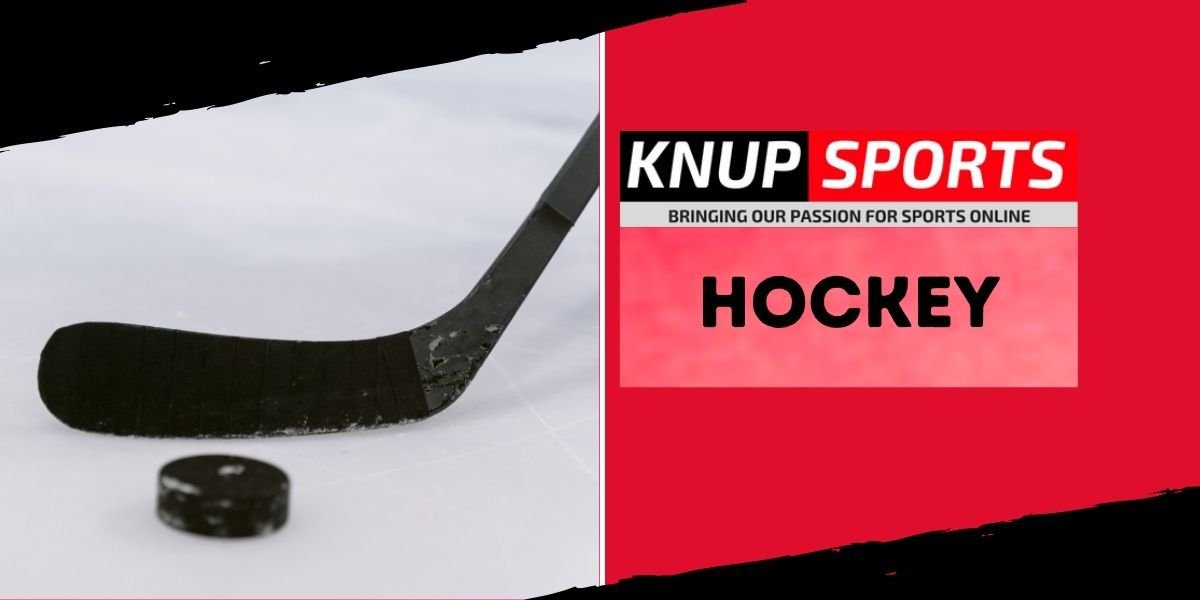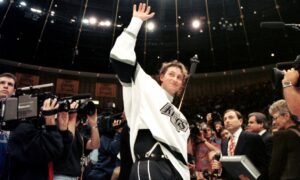Hockey clichés are a blessing and a curse for fans, players, coaches, broadcasters, and writers alike. While there is often some element of truth to cliché (after all, clichés are clichés for a reason), they also tend to add little depth to a conversation and fail to provide a clearer picture of what is going on in a game, with a team, or the league as a whole.
Here are five hockey clichés that need to go away – the sooner, the better.
“A Two-Goal Lead is the Worst Lead in Hockey”
Anyone hearing this phrase who isn’t a hockey fan is immediately puzzled by hearing it. “How can a two-goal lead be worse than a one-goal lead?” they likely ponder. “If you’re only up one and your opponent scores, you’re tied, but if you’re up by two and they score, you’ve still got the lead.”
For years, teams have preached about the danger of going into a shell and getting complacent with a two-goal lead. However, the data doesn’t really back that one up.
According to the Washington Post in 2018, teams squander a two-goal lead four out of every 10 times they get it. The converse of that stat must also be true: six out of 10 times a team gets a two-goal lead, they don’t let it slip away.
The data from the Washington Post shows all blown two-goal leads, but it doesn’t specify scenarios where Team A takes a two-goal lead, Team B ties the game, and Team A scores again to win. It’s simply the number of blown two-goal leads, which means more than 60% of the time, if a team takes a two-goal lead over their opponent, they win.
It’s safe to retire this one.
“If You Can’t Beat ‘Em in the Alley, You Can’t Beat ‘Em on the Ice”
This hockey cliché doesn’t get used as often anymore, but it’s still a pervasive mindset at all levels of the game. Coined by Hockey Hall of Famer Conn Smythe in an era ruled by the enforcer, this one simply doesn’t apply to the modern game, even though it tends to pop up when those opposed to fighting in hockey call for its abolishment from the game.
Again, there’s some degree of truth to this cliché; in other words “You have to be tough to win.” Being able to take a check or block a shot without getting knocked out of the game is an important skill to have. However, there are so many other fundamental skills to hockey more important than being able to fight your opponent. Many of the dominant players in the league aren’t fighters at all. This hockey cliché can go too.
“We’re Going to Take It One Game at a Time”
Ever tried to play two hockey games at the same time? This one is pretty self-explanatory. All teams take it one game at a time. That’s how it works.
Instead, just say “We can’t look too far ahead on the schedule” or “We’re only focused on tonight’s game.”
“We’ve Gotta Give 110%”
That’s not how percentages work. Kick this one to the curb as well.
“This Game Comes Down to Who Wants It More”
Closing out the list is my personal most hated hockey cliché. As a writer and broadcaster, this one drives me absolutely bonkers. It’s like nails on a chalkboard every time I hear it. “Who wants it more” is especially frustrating because it’s a lazy take meant to show that there’s not a clear edge rather than trying to find which advantage may exist.
This cliché is uttered the most during the playoffs (or other potential elimination scenarios), and it’s among the most overused phrases in the game.
Hockey games are not won or lost by a team’s “want” level. If “want” had anything to do with winning formulas, we’d rotate through each of the league’s 32 teams every year, awarding it to whichever team went the longest without winning it. Why even play at that point?
Furthermore, no professional athlete, in any sport, has ever said “You know what? I don’t want to win this one today. My opponent can have this game.”
With the amount of work athletes put in to hone their craft, preparing down to the most minute details of their lives, “want” stopped being a factor long before they ever stepped into a professional arena. An inherent “will to win” doesn’t mean an athlete “wants it more,” but describes their ability to singularly focus on accomplishing an outcome.
Games are never won or lost by “who wants it more.” Games are won or lost by preparations made before the contest, the ability to execute on gameplans during the matchup, and the ability to make adjustments when things aren’t working. Champions aren’t built in Game 7’s, but instead are made in practices, off-ice workouts, routines, and work ethics.
To quote one of my former coaches: “There is no glory in practice, but without practice, there is no glory.”
All of these hockey clichés can go, but if there’s one phrase to get rid of, I’m begging: please stop saying “who wants it more.”
For more NHL content, check out www.KnupSports.com/NHL.









